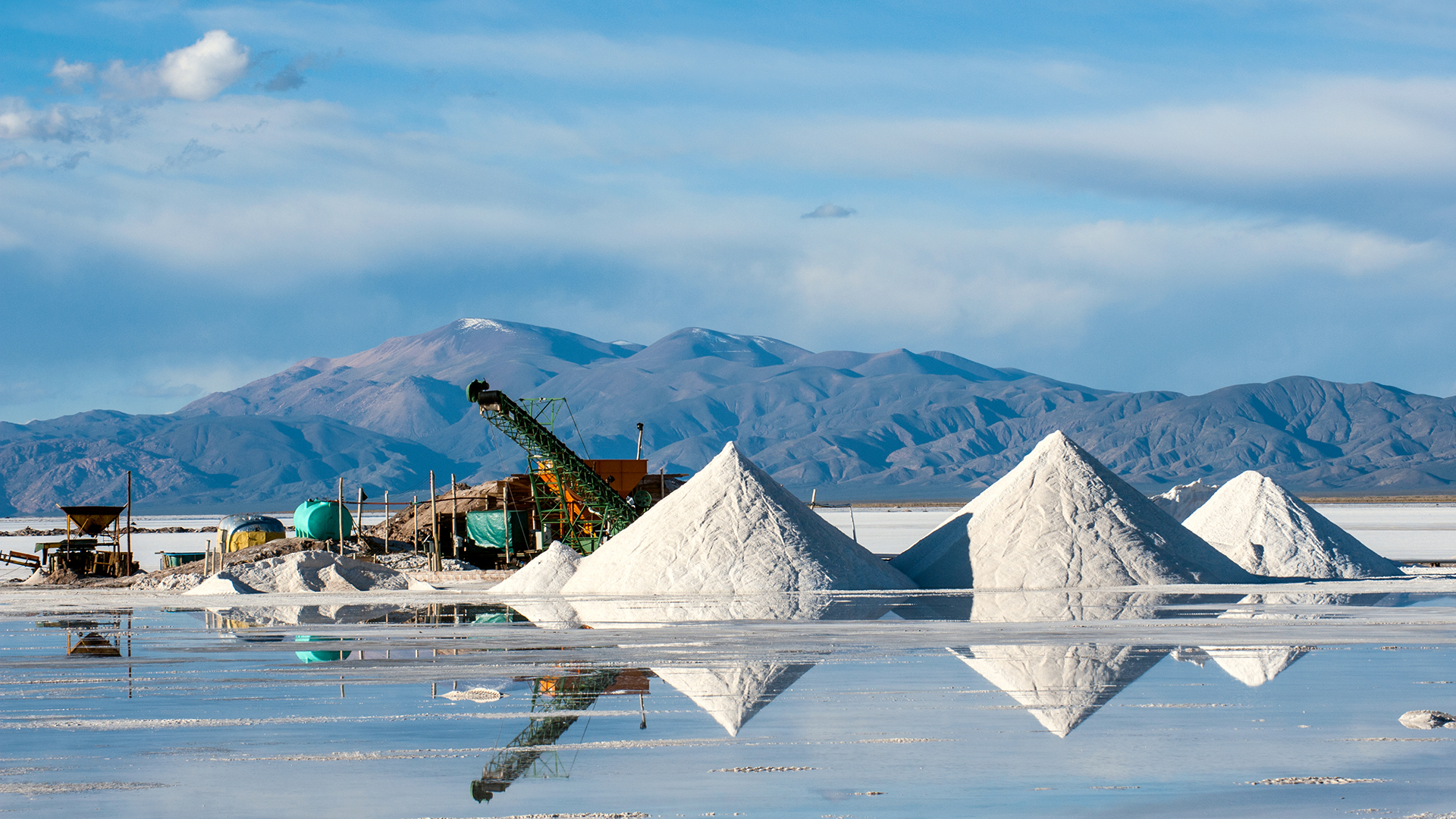We explore how Chile’s lithium mining model will revolutionise the lithium industry and meet the rising demand for battery production worldwide.
The surging demand for lithium is primarily driven by the global transition towards renewable energy sources and the consequent rise in the production of rechargeable batteries.
Lithium demand has sparked an unprecedented interest from over 50 firms in Chile’s lithium mining model, mirroring a gold rush in pursuit of this ‘white gold’.
The advancements in lithium-ion technology are a significant factor behind this trend. Innovations in battery storage have enabled these high-energy-density rechargeable batteries to store more substantial amounts of power and last longer between charges.
This has increased their efficiency and made them more attractive for applications like electric vehicles (EVS) and renewable energy storage systems. Moreover, global market trends indicate a steady growth trajectory for rechargeable batteries.

However, mining lithium is not without its environmental concerns. Despite these challenges, Chile’s lithium mining model looks promising as technological innovations continue to improve extraction methods while minimising environmental impact.
Furthermore, given that projections point towards an increase in the adoption of EVs and growing reliance on renewable energy sources worldwide – both heavily dependent on lithium-based technologies – it is clear that the demand for this element will continue unabated.
Consequently, harnessing its reserves efficiently through innovative approaches, such as Chile’s lithium mining model, becomes crucial to meet global needs while managing potential environmental implications.
Chile’s vast lithium resources
Abundant reserves of critical minerals, particularly lithium, underscore the wealth of Chile’s natural resources, with pioneering explorations such as Lithium Power International’s Maricunga project reinforcing the global supply chain.
As the country with the world’s largest lithium reserves, Chile is uniquely positioned to influence not only global markets but also geopolitical dynamics.
The burgeoning demand for this vital mineral, driven by technological advancements and a shift towards renewable energy sources, has thrust Chile into a prominent position on the global stage.
However, as it seeks to capitalise on this opportunity, Chile must confront significant environmental concerns linked to lithium extraction and navigate an evolving regulatory framework, including:
- Ecological Concerns: Lithium mining operations can have substantial environmental impacts ranging from water depletion to soil contamination. As such, companies operating in Chile are under pressure to employ environmentally friendly extraction methods while adhering to stringent regulations;
- Global Market Influence: Given its extensive lithium reserves, Chile plays a crucial role in the supply chain of industries pivoted around rechargeable batteries like EVs and high-tech electronics. Therefore shifts in its mining policies or output can cause ripple effects across international markets; and
- Geopolitical Implications: As nations worldwide increasingly depend on lithium for their green energy transitions and technological developments, control over vast reserves of this commodity gives Chile considerable geopolitical leverage. Consequently, how it manages these resources could have far-reaching implications for global power dynamics and trade relations.

Sustainable lithium extraction approaches
Navigating the path of sustainable lithium extraction, over 50 firms have shown interest in exploring untapped reserves, akin to a modern-day gold rush but with an eco-conscious twist.
This shift towards sustainability is driven by environmental concerns and highlights the importance of community engagement in decision-making processes related to resource exploitation.
A key aspect of Chile’s lithium mining model involves balancing economic gain with preserving Chile’s natural environment.
Concurrently, technological advancements are being leveraged to reduce the ecological footprint, aiming at creating more efficient and less damaging extraction methods.
The regulatory framework underpinning these changes reflects global market trends towards environmentally responsible practices across industries.
The establishment of stringent rules for lithium mining contracts in Chile not only aims to safeguard local ecosystems but also addresses potential social issues that may arise from such activities.
By incorporating provisions for community consultation and consent into contract bidding rules, authorities aim to foster a fair balance between corporate interests and community rights.
Chile’s lithium mining model signifies a paradigm shift in natural resource management, responding innovatively to contemporary environmental considerations and societal expectations.
Impacts on local economies
Exploration of untapped reserves has the potential to stimulate significant economic growth, creating jobs and attracting investment into sectors related to resource extraction.
Implementing Chile’s lithium mining model not only presents an opportunity for substantial economic growth but also fosters job creation on a large scale. This is particularly true given the interest expressed by over 50 firms in this innovative approach to mining.
As these firms establish local operations, they will necessitate developing and enhancing local infrastructure, ranging from roads and transportation networks to housing facilities and utilities, all contributing significantly towards community development.
However, balancing economic progress with environmental preservation is thus crucial. It requires careful planning and stringent regulatory oversight to ensure that any adverse environmental impacts are mitigated as much as possible while maximising benefits to the local economy.
This includes implementing sustainable practices throughout every stage of lithium extraction and processing, promoting economic prosperity and long-term ecological sustainability in Chile.

Potential industry revolution
Chile’s lithium mining model attracts global attention as it will streamline operations while adhering to stringent environmental concerns.
This model aims at capitalising on booming lithium demand, ensuring compliance with government regulations, and mitigating adverse impacts on the environment.
Technological advancements are pivotal in this transformation by facilitating efficient and sustainable exploration of new extraction areas.
Significant outcomes that may potentially stem from this industry revolution include:
- A marked increase in investment opportunities as more firms show interest in leveraging Chile’s rich lithium deposits;
- A radical change in global market trends for lithium due to an expected surge in supply from one of the world’s leading producers; and
- Progressive refinement of mining practices influenced by stringent environmental regulations and technological innovations.
These developments represent substantial progress towards a holistic approach that balances economic growth, environmental sustainability, and regulatory compliance.
Chile’s lithium mining model depicts how embracing technological advancements can potentially revolutionise the industry, underscoring the importance of maintaining flexibility and adaptability amidst evolving global demands and challenges.










